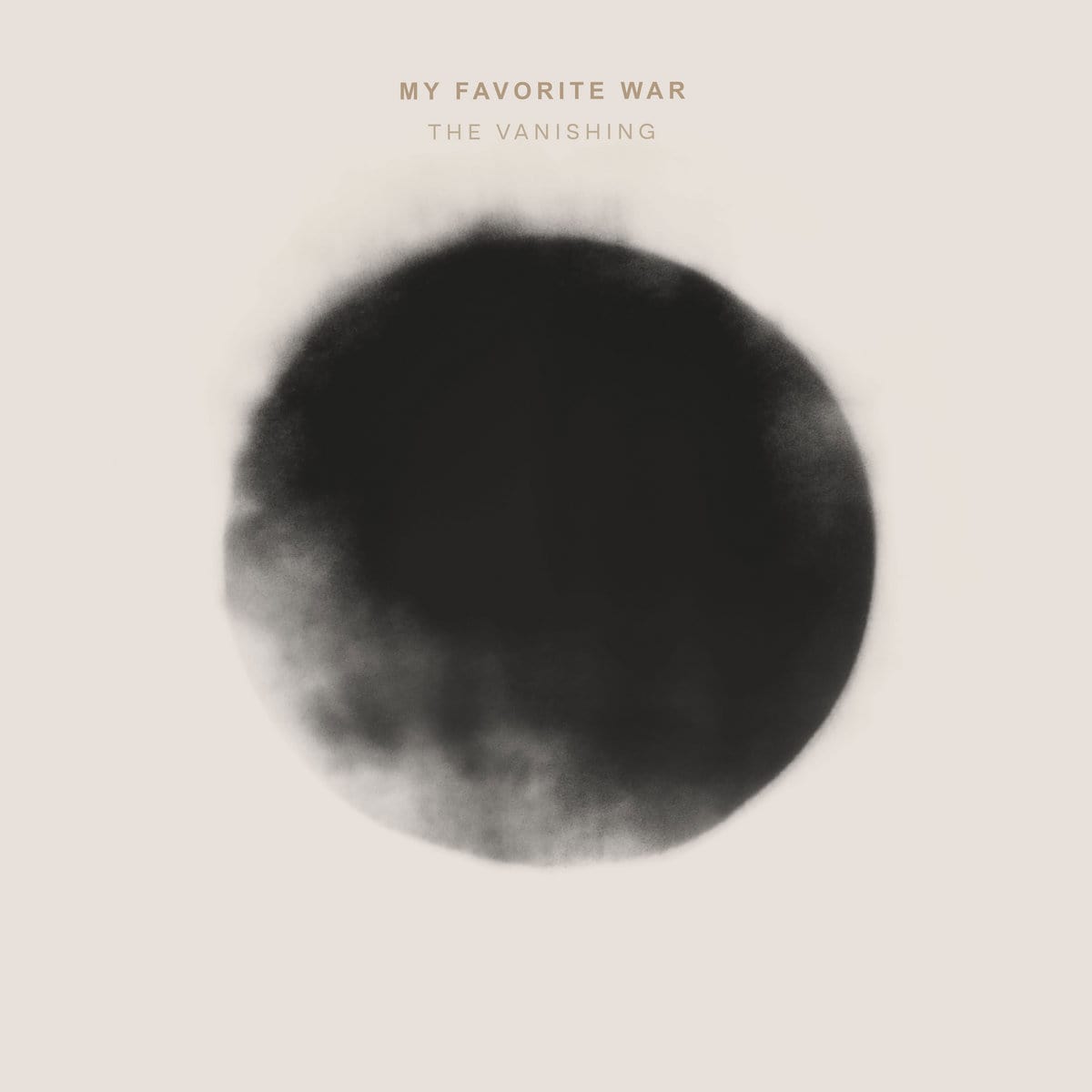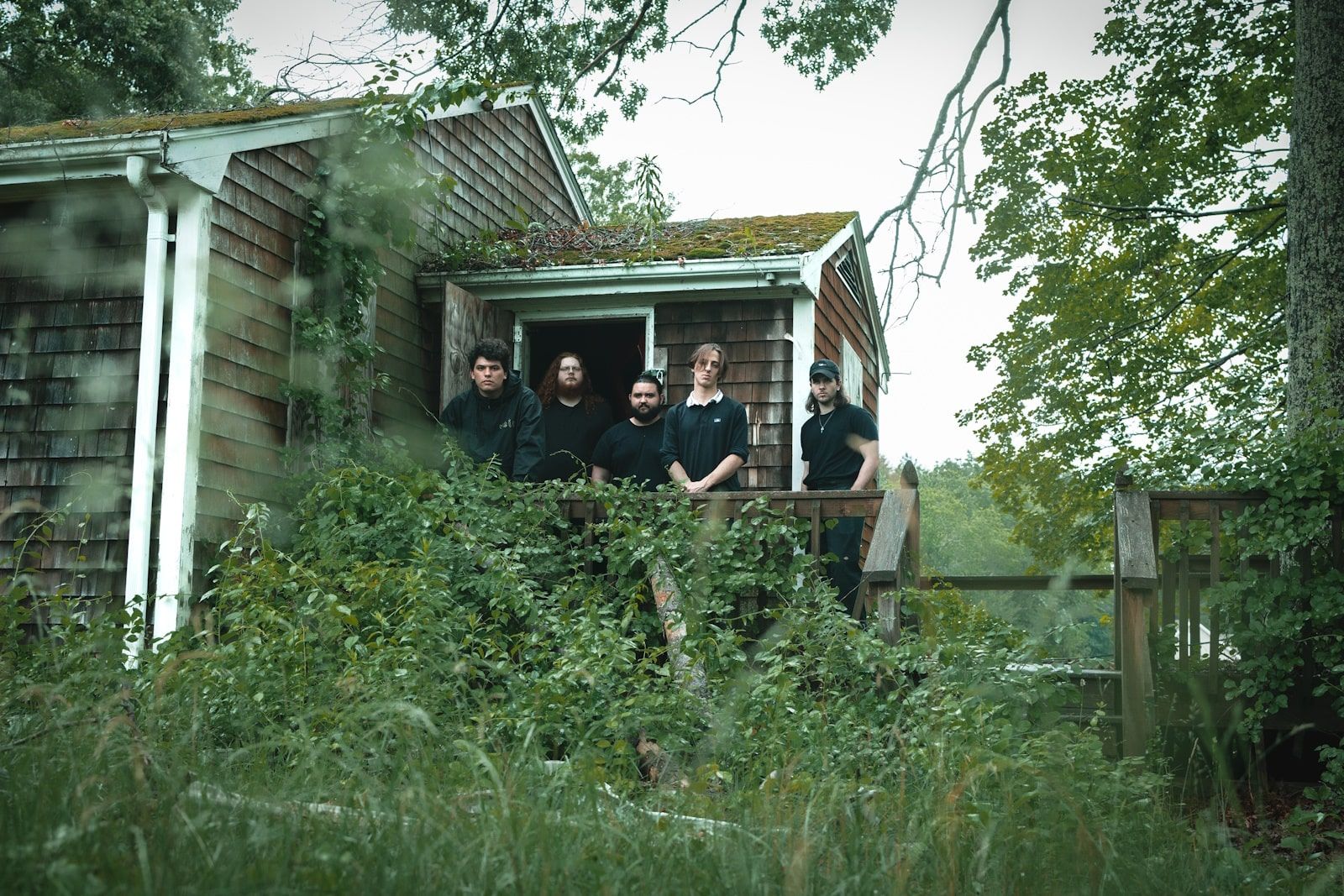In today’s world increasingly marred by socio-political upheavals and environmental crises, music has emerged as a powerful medium for reflection and rebellion. Stepping into this arena with poignant urgency is the collaborative project My Favorite War, comprising Jón Kristínarson and Ukrainian poet, singer, and artist Ella Yevtushenko. Their latest EP, ‘The Vanishing‘, is not just a collection of tracks; it is a manifesto, a sonic exploration of the most pressing issues of our times.
‘The Vanishing‘ is an audacious blend of lo-fi post-rock, psych, and noise pop. It’s a three-track EP, but the journey it embarks on is vast in scope and rich in thematic diversity.
The opening track alone is a dual narrative exploring future planetary colonization for the affluent and the devastating historical legacies of patriarchal destruction. This piece comes as a mirror held up to society, reflecting the stark inequalities and the harrowing repercussions of human actions on the environment.
Jón and Ella’s collaboration is a compelling fusion of perspectives. Jón’s musical sensibilities, rooted in a deep understanding of the post-rock genre, intertwine seamlessly with Ella’s profound poetic expressions. This synergy has birthed a soundscape that is both haunting and evocative, urging the listener to confront the uncomfortable truths of our era.
‘The Vanishing‘ delves into the analogy of humanity as a cancer, relentlessly consuming its host – Earth. This analogy is not just metaphorical but is illustrated vividly through the music. The tracks juxtapose the grandeur of human ambition with the tragic consequences of these ambitions, be it environmental degradation or the relentless pursuit of control and power.
One of the most striking aspects of ‘The Vanishing‘ is its unapologetic political tone.
The EP does not shy away from addressing the harsh realities of patriarchal dominance, colonialism, and their impacts on both human society and the natural world. Jón and Ella navigate these themes with a deft balance between personal narrative and political commentary, ensuring that the message is not lost in abstraction.
The creative process behind ‘The Vanishing‘ is as intricate as its themes. Drawing inspiration from a diverse range of influences like Grouper, Bardo Pond, and GY!BE, the EP’s sound is a testament to the duo’s artistic evolution. The choice of musical elements, the layering of sounds, and the incorporation of vocals all serve to enhance the narrative, making each track a journey in itself.
‘The Vanishing’ makes its way into the ears and hearts of listeners, and invites a multitude of reactions. It’s a catalyst for conversation, a call to action, and a reminder of the power of art to instigate change.
I noticed your first track tells a story using two different narratives. How do you go about intertwining these two narratives both in the lyrics and the music to make your message hit home?
The first track is a parallel narrative with the patriarchal protagonist at its center.
In the space industry, both historical and present contexts persist in funneling substantial capital primarily towards the ambitious goal of colonizing planets, framed as ‘saving’ humanity. This focus caters exclusively to affluent segments, leaving about 99% of humanity to grapple with the harsh impacts of a climate catastrophe. The consequences of colonialism, reflected in historical and contemporary contexts, reveal a systematic exploitation of Earth, driven by a patriarchal mindset. These industries, alongside corporate giants and fossil fuel companies, bear exclusive responsibility for the ongoing climate crisis, perpetuating a cycle of self-harm and environmental degradation likely to continue on alternative celestial bodies..
However, the intention was to speak about all these topics indirectly, through narrations and poetic images rather than statements. Hence two stories of the first track: the first one features an imaginary character who embodies the destructive patriarchal urge to colonize new worlds. We see him in the moment of his failure, and the dark, slow pace of the music adds to the epic impression.
The second part was inspired by the history of Easter Island: its former inhabitants, the Rapa-Nui, developed quite an impressive civilization which, due to the extensive way of handling natural resources, was doomed to starving to death. The song is meant to be their confession, prayer (almost a gospel!), and at the same time their warning for the next generations.
What both narratives have in common is the image of a ship: a spacecraft in the first case, an ark giving false hopes to those who believe in colonizers’ tales; the island itself in the second case, literally sinking because of the erosion.
Your music has a strong political tone. How do you find the balance between personal and political themes in your songwriting? Are there any personal stories that have directly influenced the themes in ‘The Vanishing’?
Politics touches everyone, whether they actively participate or observe from afar. Passivity is a mischaracterization; by choosing not to partake in politics, one essentially delegates the authority to others in determining the societal framework. The concept of a purely ‘personal’ life loses validity as patriarchal warmongers and capitalists continue their destructive impact!
All the lyrics in the album are actually deeply personal – sometimes you just have to take a step forward to see them. All the tracks are intended to play with the listeners’ emotions: written from the point of view of “villains”, they render obvious the problems we try to speak of.
For instance, the second track draws a parallel between the human race’s urge to “civilize” nature and men’s wish to bring women to artificial standards of beauty. Every woman has heard, at least once in her life, that she should look or behave in a certain way which is considered “proper” for her gender. Here these rules are extrapolated to nature itself and thus brought to absurdity which is striking and more effective in conveying the message.
Could you share a bit about your creative process? Especially, how do you craft the soundscapes for such complex themes like colonialism and environmental destruction? What guides your choices in the musical elements you use?
Our current sound draws significant inspiration from continuous exposure to bands like Grouper, Bardo Pond, and GY!BE. It leans towards a more somber tone compared to our previous release, where noise and chaotic instrumentation played a more prominent role.
The vocals are created after the instrumentals are ready, so they are built on top of them, but also based on the general idea of a track and the whole album. Two tracks end with a phrase being repeated over and over, like an obsessive thought, forming a long, incantation-like coda: this helps underline our concerns about the themes of the album.
Should be added, though, that any such analysis of the music can only be made a posteriori. It is possible to decide, while writing lyrics, to use such and such approaches; but making music, vocal parts in particular, is a more subtle, intuitive process which is rarely verbalized. It has to do with emotions and atmosphere, so we can say that one should really root for a cause in order to speak about it through music.
With all the political turmoil going on globally, how does this influence your music, particularly with ‘The Vanishing’? Are there any local issues that you feel are particularly reflected in this EP?
The music we create is heavily influenced by nearly every element driving the political machinery. There is a plethora of reasons for discontent, from conflicts in Ukraine, Sudan, Niger, and the genocidal campaign in Gaza to the pervasive issues of rape culture, sexual predators, pedophiles, and child molestation. The persistent suffering in the world shows no signs of abating, and it’s no coincidence that 99% of these human tragedies stem directly from the patriarchy.
Since Ella, the singer and the author of the lyrics, is Ukrainian, of course, the war that Russia leads against Ukraine influences her work, even if indirectly. Russia’s imperialist aspirations prove that colonization remains a problem even in the XXI century; and the current war has a lot in common with gender-based violence, the two countries’ “common” past resembling a marriage to which the woman never gave her consent. The conflict raging in Ukraine also is extremely harmful for the environment (we can speak of an ecocide led by Russia: just look at the harm caused by the explosion of the Kakhovka dam). These local issues make all these global problems deeply personal.
Your music surely stirs up different reactions, given its strong political messages. What kind of conversations do you hope to spark among your audience with ‘The Vanishing’?
To be honest, there is a certain fear that our music only appeals to those who already stand by our values and doesn’t convince the indifferent. That is why the lyrics are often ironic or sarcastic, or just provocative: any reaction is better than no reaction, and if we manage to spark a discussion, then at least we have some results. Ideally, we would hope that it sparks increased political consciousness and activism. The dissatisfaction with the current state of the world is abundant; you can select from a variety of issues!
The idea of future planetary colonization for the elite in your first track is quite a thought-provoker. What inspired this concept, and how do you think it mirrors our current societal structure?
It arises from the fatigue and frustration of having to observe the blatant idiocy of these capitalist jesters, including Bezos, Musk, and Branson. It serves as a direct societal commentary on the moral and ethical vacuum within capitalism.
How has your sound evolved with the integration of these intense themes? Do you find that your approach to music changes as the global political scene shifts?
Our sound is in a perpetual state of evolution, yet its lyrical core consistently intertwines with political themes. Our project started in 2022, and it doesn’t seem like there were any major changes in world politics – the most important problems remain the same. Let’s hope that My Favorite War will last – then we may see some changes!
Tackling themes like patriarchal destruction and humanity’s impact on the environment is no small feat. What are some of the biggest challenges you face in addressing these heavy topics in your music?
I wouldn’t frame the process of crafting our music’s lyrical content as facing obstacles. In both ‘The Vanishing’ and our preceding release ‘Songs for Serpents,’ our aim is clear: confronting the myriad errors and challenges present in the contemporary global political scenario. The prevalence of a destructive capitalist ideology on a global scale presents us with an extensive array of topics to delve into!
There are of course a number of practical issues: for example, how to choose the right tone of voice – since it’s easy to end up with a set of standard, exalted phrases which will only undermine our aim. It is very important for us to keep the balance between political messages and poetic form. Our music is not propaganda, it’s sincere art, we care about both ethics and aesthetics, and even the most serious topics shouldn’t make our music unlistenable.












